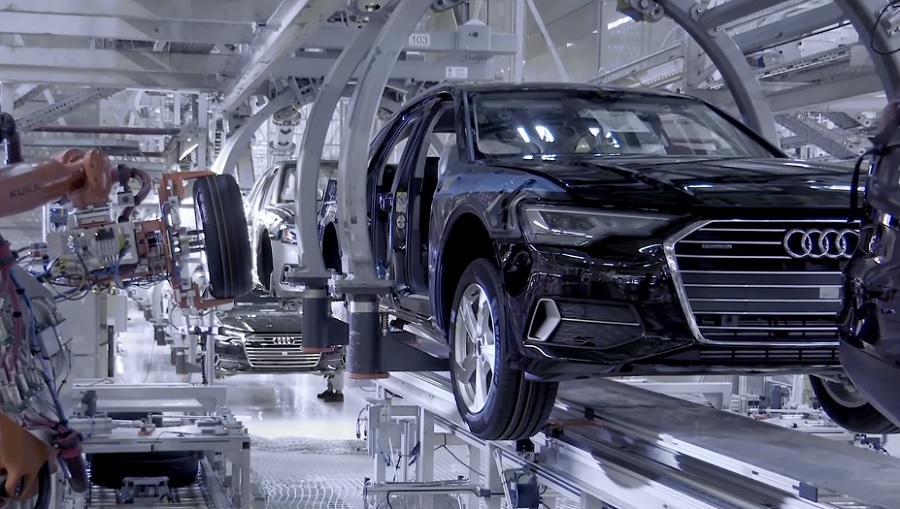At the automakers Audi and BMW, production is gradually ramping up. Both representatives of the auto industry and the Bavarian Prime Minister Söder are in favor of a purchase premium for new cars.

At the automakers Audi and BMW, production is gradually ramping up. In Bavaria, Prime Minister Markus Söder (CSU) and Economics Minister Hubert Aiwanger (FW) visited the two largest car factories and agreed to support the auto industry.
At the main Audi plant in Ingolstadt, a three-shift operation was carried out on a assembly line for the first time since mid-March, while production at the BMW plant in Dingolfing has just started again. Audi CEO Markus Duesmann said the company is doing everything, “but the pandemic will continue to be with us for a while.” Söder said in Ingolstadt: “We want 4,000 euros in innovation bonus for low-emission cars and 1,000 euros in recycling bonus for older cars.” The car is the driving force of industry.
Audi works council chief Peter Mosch said: “The targeted promotion of the auto industry by means of a bonus when buying a new car would have an enormous impact on the economy and jobs in our country.” The German government wants to decide on economic stimulus in June.
At Audi in Ingolstadt and Neckarsulm, 19,000 employees are still on short-time work, as a spokeswoman said. However, 6,000 employees have been in production at the main plant since Monday, and cars in the A3 and Q2 model series are now being built in a three-shift operation. The goal is 900 cars per day, “almost like normal operation” on this line. The two other assembly lines on which the A3, A4 and A5 will be built are not scheduled to start operating until May 26 in one-shift operation. In Neckarsulm, the larger series have been built for a week, currently also with only one shift.
At the largest European BMW plant in Dingolfing, cars rolled off the assembly line for the first time – but only a few hundred instead of the usual 1,500. Initially, only the early shift is produced. Everything else depends on customer demand, explains plant manager Christoph Schröder: “Unfortunately, a rapid recovery in the automotive markets is currently not to be expected. We must and will continue to be flexible here.”
Aiwanger said in Dingolfing: “We now have to create the conditions for employees from all industries to come back from short-time work and to secure existing jobs”. Production starts with the right protective measures and hygiene rules.









